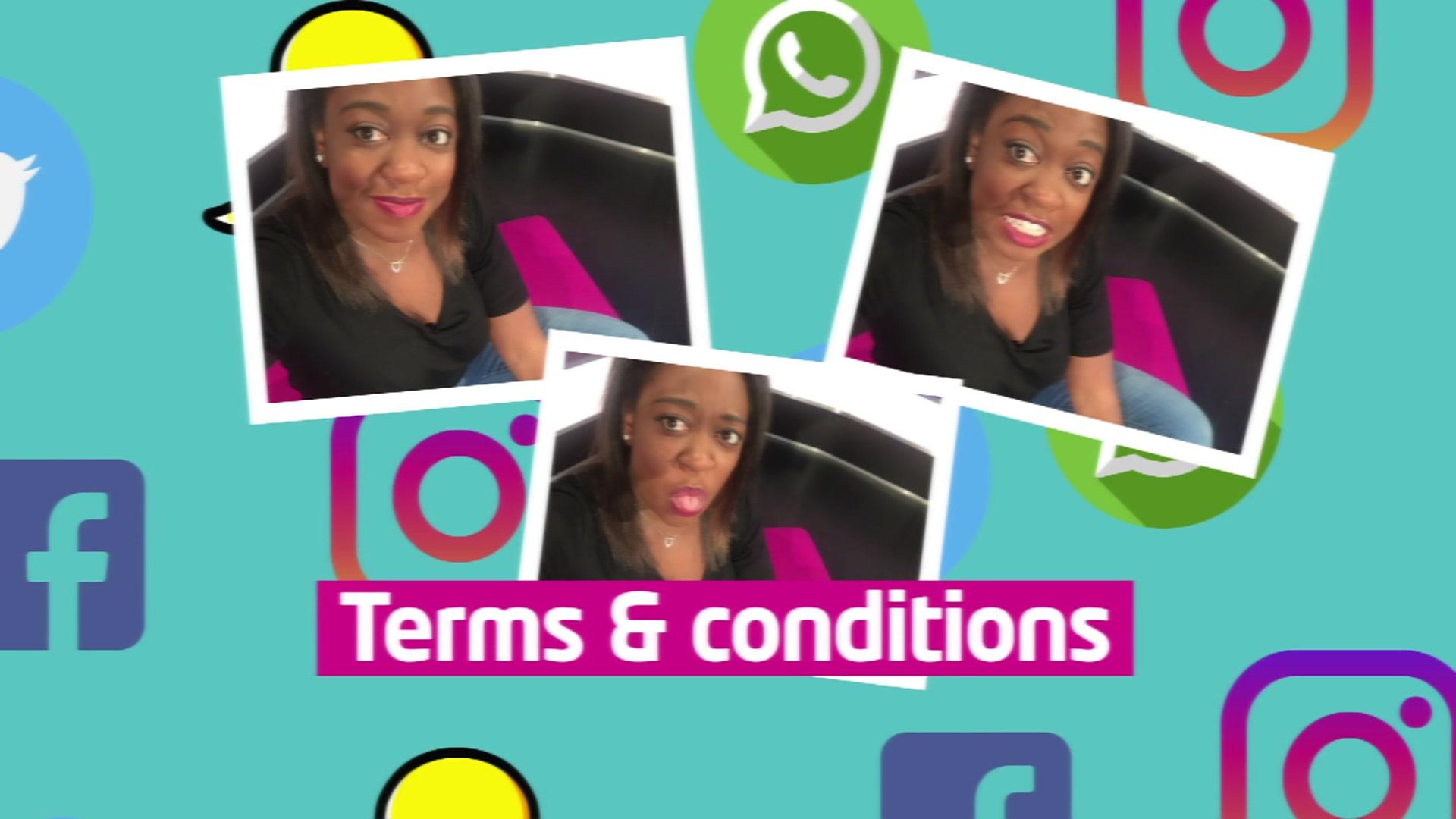Do YOU know what social media rules you've signed up to?
- Published
Do YOU know what social media rules you've signed up to?
How much do you know about the rules around social media?
When you sign up to a social media account you have to tick a box to say you agree to their Terms and Conditions.
But they're always really long and complicated.
Now, the Children's Commissioner for England has designed some simpler rules to help you understand what you are agreeing to when you set up a social media account.
But these new rules are just advice and there are no plans for social media companies to start using them.
Take a look at this article and then take part in our vote - Do you understand social media terms and conditions?

So what are terms and conditions?
When you sign up to Facebook, Snapchat or Instagram, you automatically agree to the way they do things. That means you're signing up to a strict set of rules.
Instagram's latest terms are made up of 5,000 words. Licence, liability, disclaimer and copyright are just some of the words that feature heavily.
When it comes to reading the small print, you've told us that sometimes it's a bit of a bore. And let's be honest, you're not the only one who struggles to understand. Loads of adults do too.
Do you REALLY read the terms and conditions?

Anne Longfield is the Children's Commissioner for England. She works to protect your rights and has re-written the terms and conditions of a number of social networking sites to try to make them clearer.
What do these new guidelines explain?
The new guidelines have cut the number of words to just a few hundred with headings and bullet points.
They also spell out what social networking sites are allowed to do with your information.
They say Snapchat can "publically display or sell any content you posted on Live or Local Snapchat. This means we can use a young person's face and voice in any way we like, for free".
But Snapchat says this advice isn't right. It says it's only when you've chosen to make a snap public that it can be used in this way.
The advice also says Instagram can read users' direct messages. Insta also says it's not happy with the way that the Children's Commissioner has tried to explain things.
All companies collect a range of personal information, like how long you spend on certain pages and even how much battery power your phone has.
These new, simpler Ts and Cs are just advice - there are no plans for the social media companies to use them. But the people behind them hope it will help you to better understand your rights.
The Children's Commissioner helping to bust confusing terms & conditions

We asked some of the big social media companies if they were going to use the new wording.
Facebook didn't say they would be but they told us they want everyone to feel "safe and secure" and that they're "working closely with safety experts, including the Children's Commissioner". They also say they have a "Parent Portal, a Privacy Basics Tool and a Safety Centre" which are "easy to understand".
Snapchat says it's made an effort to make their Ts and Cs as clear and easy to understand as possible. They also say they will look at the Children's Commissioner's suggestions and will continue to try and make sure young people engage with technology in a safe and positive way.
Instagram claims there are "inaccuracies in the Children's Commissioner's re-written terms. It is wrong to suggest we share young people's personal information, contact details, or content of direct messages with advertisers without their permission. Nor do we share details of who people are messaging with. While IG users can use Instagram to communicate with advertisers, that only happens with their knowledge and consent". It says it takes the safety and privacy of its users "seriously".
- Published17 February 2017

- Published20 March 2017

- Published16 February 2017

